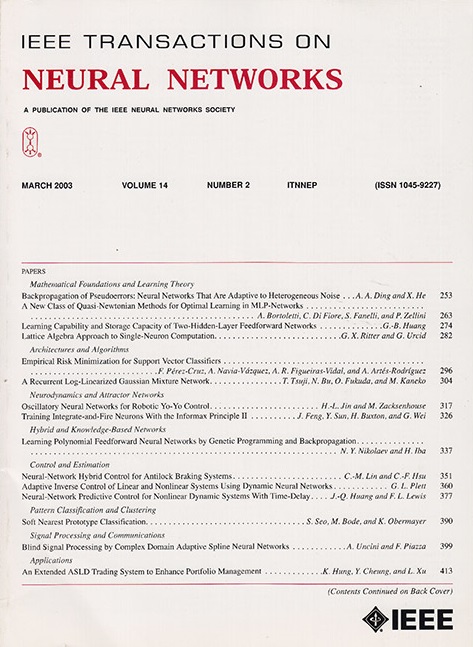Federated Fine-Tuning on Heterogeneous LoRAs With Error-Compensated Aggregation.
IF 10.2
1区 计算机科学
Q1 COMPUTER SCIENCE, ARTIFICIAL INTELLIGENCE
IEEE transactions on neural networks and learning systems
Pub Date : 2025-07-17
DOI:10.1109/tnnls.2025.3586545
引用次数: 0
Abstract
Federated learning (FL) has recently been applied to the parameter-efficient fine-tuning (PEFT) of large language models (LLMs). While promising, client resource heterogeneity has imposed the challenge of the "bucket effect" to FL, where model configuration must cater to the client with the fewest resources. To tackle this issue, heterogeneous low-rank adaptation (LoRA) has recently emerged in FL, which enables clients to do local fine-tuning with different LoRA ranks. However, existing works in this area typically adopt zero-padding, stacking, or singular value decomposition (SVD) for LoRA aggregation, which often incur precision loss or significant overhead, limiting their practicality. In this article, we propose ECLoRA, a novel method for federated fine-tuning with heterogeneous LoRA settings across clients. ECLoRA employs randomized SVD (RSVD) to dramatically reduce aggregation overhead while introducing an error compensation (EC) mechanism that incorporates the decomposition error from previous rounds to improve aggregation precision. Extensive experiments on four widely used foundation models across six public tasks demonstrate the effectiveness of ECLoRA. Specifically, ECLoRA is: (1) accurate, significantly improving the final model performance; (2) fast, accelerating convergence with an average speedup of $1.54\times $ to $3.01\times $ ; and (3) practical, reducing aggregation time by approximately $40\times $ compared to classical SVD.基于误差补偿聚合的异构LoRAs的联邦微调。
联邦学习(FL)最近被应用于大型语言模型(llm)的参数有效微调(PEFT)。虽然前景看好,但客户端资源的异质性给FL带来了“桶效应”的挑战,即模型配置必须以最少的资源来满足客户端。为了解决这个问题,最近在FL中出现了异构低级别适应(LoRA),它使客户端能够使用不同的LoRA级别进行本地微调。然而,该领域的现有工作通常采用零填充、堆叠或奇异值分解(SVD)进行LoRA聚合,这通常会导致精度损失或显著的开销,限制了它们的实用性。在本文中,我们提出了ECLoRA,这是一种用于跨客户机使用异构LoRA设置进行联邦微调的新方法。ECLoRA采用随机SVD (RSVD)来显著降低聚合开销,同时引入了误差补偿(EC)机制,该机制结合了前几轮的分解误差,以提高聚合精度。在6个公共任务的4个广泛使用的基础模型上进行的大量实验证明了ECLoRA的有效性。具体而言,ECLoRA具有:(1)准确性,显著提高了最终模型的性能;(2)快速,加速收敛,平均速度从1.54倍提高到3.01倍;(3)实用性,与经典SVD相比,聚合时间缩短了约40倍。
本文章由计算机程序翻译,如有差异,请以英文原文为准。
求助全文
约1分钟内获得全文
求助全文
来源期刊

IEEE transactions on neural networks and learning systems
COMPUTER SCIENCE, ARTIFICIAL INTELLIGENCE-COMPUTER SCIENCE, HARDWARE & ARCHITECTURE
CiteScore
23.80
自引率
9.60%
发文量
2102
审稿时长
3-8 weeks
期刊介绍:
The focus of IEEE Transactions on Neural Networks and Learning Systems is to present scholarly articles discussing the theory, design, and applications of neural networks as well as other learning systems. The journal primarily highlights technical and scientific research in this domain.
 求助内容:
求助内容: 应助结果提醒方式:
应助结果提醒方式:


